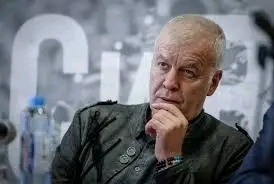
The Tynecastle club contested that their player’s sending-off on the final day of the Premiership was unjust. However, the Scottish Football Association tribunal dismissed Hearts’ appeal against Yan Dhanda’s red card received during Sunday’s match at Kilmarnock. A fast-track hearing was held on Tuesday, with the Edinburgh club arguing that Dhanda’s dismissal was incorrect and should be overturned. Despite this, the original ruling stood, and Dhanda was handed a two-match suspension.
Referee Dan McFarlane issued the red card after 38 minutes when Dhanda, who was in possession and moving towards the opposition’s penalty area, caught Kilmarnock defender Stuart Findlay above the ankle with his studs. The contact occurred after Dhanda was pushed towards Findlay by a tackle from behind by David Watson, but the raised studs made it serious foul play. McFarlane reviewed the incident on the touchline monitor before sending Dhanda off. As Sunday was Hearts’ final league fixture, Dhanda will now miss the first two matches of the 2025/26 Scottish Premiership season.
Despite being down to ten men, Hearts secured a 1-0 win thanks to Stephen Kingsley’s late goal, marking interim coach Liam Fox’s fourth consecutive victory and helping the club avoid relegation. The day after the match, Hearts announced Derek McInnes as their new head coach.
McInnes did not attend the game at Rugby Park amid rising tensions among Kilmarnock fans as he prepared to take charge at Tynecastle. His arrival was confirmed alongside the moves of coaches Paul Sheerin and Alan Archibald from Ayrshire to Edinburgh. McInnes has outlined his plan to restore Hearts to a more competitive standing following their seventh-place finish this season, with his primary goal being to make Tynecastle a more intimidating venue.
“Sometimes I feel when teams come here now, it’s a bit sanitized,” McInnes said. “Once the game starts, teams settle in and enjoy it. I want the opposite — I want players to dread coming to Tynecastle, to find it an intimidating place. For that to happen, our players must thrive on the atmosphere. The fans do their part by being here early, now it’s up to us to give them a game to enjoy.”
Reflecting on the style of Scottish football compared to European leagues, McInnes added: “The Hearts teams I’ve faced before brought intensity and aggression, and the crowd responded loudly. We need to revive that spirit. Sometimes being too slow and precise with build-up play lets the opposition relax. We want teams to feel uneasy coming here — that’s easier said than done, but it’s crucial. Hearts always had strength, not just through physicality but fitness and energy. You need to match that with skill and technical ability, but also with grit.”
He continued, “Scottish football differs from leagues in Scandinavia or elsewhere, where the game can be more technical and slower. Here, you must play with extra edge, passion, and determination from the outset. Fitness and mental toughness are vital to cope with what’s demanded.”
In closing, McInnes said, “What’s expected of me and my team is success. I need to build a squad that reflects that — one that’s energetic, fit, confident, and ready to handle the challenges of playing for Hearts.”







